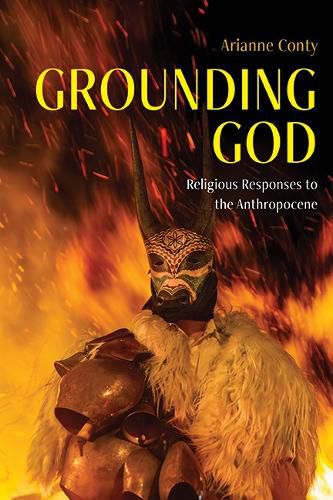Readings Newsletter
Become a Readings Member to make your shopping experience even easier.
Sign in or sign up for free!
You’re not far away from qualifying for FREE standard shipping within Australia
You’ve qualified for FREE standard shipping within Australia
The cart is loading…






This title is printed to order. This book may have been self-published. If so, we cannot guarantee the quality of the content. In the main most books will have gone through the editing process however some may not. We therefore suggest that you be aware of this before ordering this book. If in doubt check either the author or publisher’s details as we are unable to accept any returns unless they are faulty. Please contact us if you have any questions.
Looks at how different religious traditions (Christian, Buddhist, neopagan, and animist) have attempted to resacralize the earth and provide new values that include the more-than-human world.
Now that we have entered the Anthropocene, the geological age in which humans have altered the natural world to such an extent that nature and culture can no longer be separated, the modern dichotomies of mind versus body and culture versus nature have become implausible and need to be replaced. In Grounding God, Arianne Conty argues that it is in the field of religion where we can find a new ontology better suited for the Anthropocene. Conty calls this new religious ontology the grounding of the sacred, in that it seeks to deconstruct the binaries of modernity and provide in their place a revalorization of the immanent earth and the more-than-human beings that inhabit it. Such a grounding of the sacred is a potent means to overcome the exploitation and desecration of the earth and its nonhuman beings and, to provide in its stead, an inclusive cosmopolitics that extends mind into matter and culture into nature. Tracing such a grounding in the Christian, Buddhist, neopagan, and animist traditions, Conty seeks to elaborate an interdisciplinary ecosophy, one that uses philosophy, anthropology, and religious studies to provide new values for the present age.
This book is freely available in an open access edition thanks to Knowledge Unlatched-an initiative that provides libraries and institutions with a centralized platform to support OA collections and from leading publishing houses and OA initiatives. Learn more at the Knowledge Unlatched website at https://www.knowledgeunlatched.org.
$9.00 standard shipping within Australia
FREE standard shipping within Australia for orders over $100.00
Express & International shipping calculated at checkout
This title is printed to order. This book may have been self-published. If so, we cannot guarantee the quality of the content. In the main most books will have gone through the editing process however some may not. We therefore suggest that you be aware of this before ordering this book. If in doubt check either the author or publisher’s details as we are unable to accept any returns unless they are faulty. Please contact us if you have any questions.
Looks at how different religious traditions (Christian, Buddhist, neopagan, and animist) have attempted to resacralize the earth and provide new values that include the more-than-human world.
Now that we have entered the Anthropocene, the geological age in which humans have altered the natural world to such an extent that nature and culture can no longer be separated, the modern dichotomies of mind versus body and culture versus nature have become implausible and need to be replaced. In Grounding God, Arianne Conty argues that it is in the field of religion where we can find a new ontology better suited for the Anthropocene. Conty calls this new religious ontology the grounding of the sacred, in that it seeks to deconstruct the binaries of modernity and provide in their place a revalorization of the immanent earth and the more-than-human beings that inhabit it. Such a grounding of the sacred is a potent means to overcome the exploitation and desecration of the earth and its nonhuman beings and, to provide in its stead, an inclusive cosmopolitics that extends mind into matter and culture into nature. Tracing such a grounding in the Christian, Buddhist, neopagan, and animist traditions, Conty seeks to elaborate an interdisciplinary ecosophy, one that uses philosophy, anthropology, and religious studies to provide new values for the present age.
This book is freely available in an open access edition thanks to Knowledge Unlatched-an initiative that provides libraries and institutions with a centralized platform to support OA collections and from leading publishing houses and OA initiatives. Learn more at the Knowledge Unlatched website at https://www.knowledgeunlatched.org.